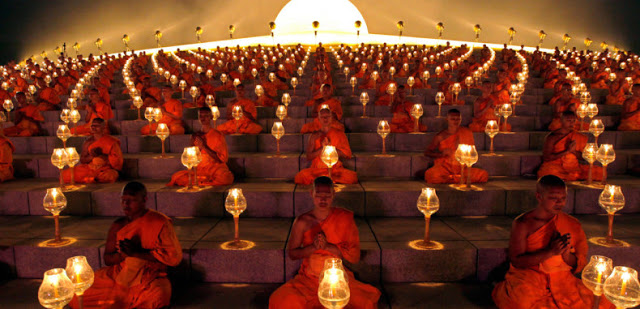Learn what the Buddhist teachings tell us about reincarnation, our current existence and what we should strive for.
By Helen E. Williams, Dreamcatcher Reality
The concept of reincarnation and rebirth is subject to a great deal of misunderstanding. We are faced with questions like:
Can we be reborn as an animal in our next life? Can the soul transmigrate into some animal or another person? Is there a difference between reincarnation and transmigration? Is there any difference between the karmic system and fate?
These are just a few examples of the questions many people ask. And, hopefully, this article will shed some light on the fascinating concept of reincarnation.
A common misconception is that a person has already lived countless lives in the form of an animal, before being born as a human, and when this life is over, they will continue to do so again as an animal, depending on the kind of life they have lived.
It is believed that the Buddha left us with over 84,000 teachings. This symbolic number represents the diverse nature of the teachings.
The simple folks of the time were taught about reincarnation as a moral lesson. It was supposed to help the people of the time understand that they must live in a way that would help them acquire a better position in their next life.
However, in today’s highly educated world, literally thinking over such teachings would only confuse us as it makes no rational sense.
This is where the problem lies. A parable, if taken literally, leads to further confusion, as something as elementary would appeal to the modern mind. Hence, one who is in search of knowledge or the truth is responsible for differentiating between myths, parables and reality.
However, then we are faced with another question if we transcend beyond these myths and parables, would there be anything left to derive the truth from?
Reincarnation is a complex concept, and it is anything but a simple physical rebirth of a person. For instance, an immortal soul that leaves a body will never transform into a cat after a person dies. The concept of transmigration of the soul does not exist in the teachings of Buddhism.
What is Karma?
Karma is a Sanskrit word that simply means action; since no action is an isolated event, there are always a series of actions. Hence, it becomes a continuous chain reaction of various causes and their effects, which, in all its complexity, forms the system that governs the universe.
A good cause will result in a good effect and a bad cause will result in a bad effect. Hence, the karmic system is a moral law.
The existence of human beings results in physical and spiritual forces that become a part of the universe. According to the law of conservation of energy, no energy is ever lost — it just changes its form.
Similarly, human action, whether physical, spiritual, or mental, is never lost; it just transforms into something else. Hence, karma is the law of conservation in terms of moral energy.
We all release spiritual energy through our actions, words, and thoughts, which become a part of the universe. Since everyone is creating these energies, we are constantly influenced by the energies we come in contact with.
Consequently, since we are constantly sending and receiving these energies or influences, our entire existence is based on the karmic system.
Hence, karma is not fate. Fate is the concept that our lives are preplanned by an external entity and we have no real control of our destiny. Karma, however, can be changed. We are conscious beings and, therefore, can strive to change or influence the course of our lives.
The System that Governs our Realities
According to the teachings of Buddhism, there are ten different realms of being, a form of hierarchy, which is explained below:
- Buddha
- Enlightened being who is destined to become Buddha but was left on earth to teach others
- A Buddha for oneself
- A direct disciple of Buddha
- Heavenly beings
- Human beings
- Fighting Spirits
- Beasts
- Hungry beings
- Depraved or hellish beings
These realms are considered as dynamic and subjective. A depraved being can elevate oneself to the highest possible realm, through their personal efforts.
This can be achieved through the purification of our mental states, our thoughts, and our actions. Hence, we are responsible for the state we may be in and the resulting reincarnation after death.
What the Concept of Reincarnation Teaches
The concept of reincarnation is a result of the karmic system. How we spend our lifetimes and the energies we release into the world will influence what awaits us once our mortal lives are over and our immortal soul moves on.
A little introspection will help you understand your current state of being. Once you understand your current standing, your motives and intentions can always alter, elevate, or demote your position in this world.
All you need is discipline and cultivation to rise to an enlightened state of the Buddha and create a desirable reality, once your mortal bodies die and your immortal soul reincarnates into another mortal existence.
About the author: Helen Elizabeth Williams is the owner of DreamcatcherReality.com, where she is a staff writer. Her passions are: spirituality, meditation and polo. She adores all animals, but horses have a special place in her heart. She loves the diversity of our cultures, the beauty of simple people and the harmony of Mother Nature.
